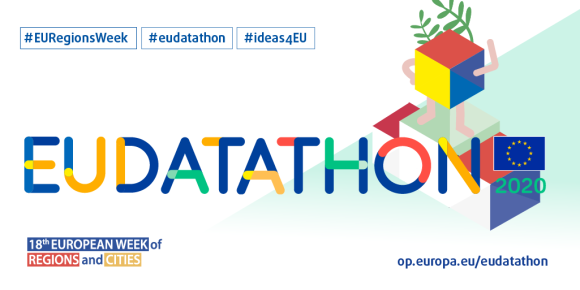
The future is now. And it is digital. The EU Datathon 2020, which culminated at this year's European Week of Regions and Cities, brought together 12 finalist projects who have transformed data in solutions to current challenges, such as an European Green Deal, a people-oriented economy, a new push for democracy, and a Europe fit for the digital age.
Despite the global economic crisis and pandemic crisis, billionaires have seen their wealth soar by 27% since last march. This was largely due to the corona-induced demand for their goods and services but also to social distancing, which accelerated and created the impetus for digital businesses. Taking that into account, Elisa Ferreira, Commissioner for Cohesion and Reforms, reflected on the evidence that only 1 in 5 SMEs are well digitized. She believes the crisis of Covid-19, however, is the ideal moment to reshape our economy to a new and better normal, where a boost might be given by digital technology; all while reducing commuting and carbon emissions.
In addition, Elisa Ferreira emphasized the importance of Cohesion Policy, not only for its investments on projects but also for its commitment to publish the generated data in its award winning data platform. She believes this data can provide information to better target EU's intervention for today's recovery and tomorrow's green growth.
Following this thought, Alexandra Balahur, project officer at the Joint Research Centre of the European Commission, recognized how data, and especially open data, has been of critical importance in the context of Covid-19 crisis management. Moreover, she made a call on good data to be used for good, in the same manner as in EU Datathon, which uses high quality data to build capacity and models to sustain our society’s political, economic and environmental needs.
Reflecting on the EU digital revolution, Danielle Rizzi, policy officer at European Commission, pointed out that understanding current problems regarding the use of data and the development of a digital age, is the basis to tackle issues such as lack of European data processing and storage, absence of comprehensive data governance approaches, low data literacy, etc. For instance, the 4 pillars of the EU Data Strategy focus on: the development of a cross-sectoral governance framework for data access and use, a € 4-6 billion investment in European data spaces and cloud infrastructures, investments in digital skills and capacity building for SMEs, and a rollout of data sharing arrangements.
During the closing keynote, Sasha Baillie, CEO of Luxinnovation, argued that it is necessary to overcome 3 major challenges to render data - held by private companies - more accessible for innovation. The first challenge is commercial, as companies fear compromising their competitive advantage by sharing the data. Secondly, a technical challenge, related to data interoperability. Lastly, the - perhaps - greatest challenge is privacy protection. Indeed, for example, IoT collected data can get an insight into private life, which goes against the fundamental principles of freedom and democracy. To solve this challenge, she introduced the idea of a “New Deal on Data”, a concept by MIT professor Alex Pentland. According to this new deal, all the personal data belongs to individuals, not companies. Therefore, an individual should be able to obtain a complete overview of their own data, and then decide whether to render it accessible through regulated databanks, which would allow the data to be used for a good purpose.
Finally, Paul Hofheinz, president of The Lisbon Council announced the winners of the competition.
The winners by the Jury for the 2020 EU Datathon are:
- for the challenge "A European Green Deal": Geofluxes, an open-source platform for waste flow mapping and analytics;
- for the challenge "An Economy that works for people": Finline, an app to help SMEs assess their financial viability and customised advice for grants/investments;
- for the challenge "A new push for European democracy": Next Generation Democracy, an app that enables citizens to engage directly with politicians;
- for the challenge "A Europe fit for digital age": Digital forests of Dryads of Copernicus, using satellite imagery, spectral analysis and machine learning to protect forests from illegal logging.
The Public Choice Award winners are, instead:
- in first place: Finline;
- in second place: Dataseeds, an app for agricultural SMEs to help them becoming part of the green restructuring of EU industry;
- in third place: Elaboro an app that quantifies environmental issues, identify risk factors and measure the effectiveness of interventions;
by Thaysa Portela de Carvalho (Finland)



